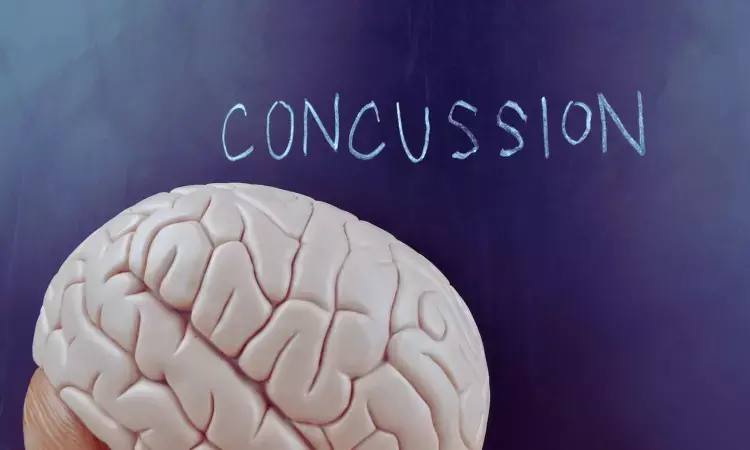- Home
- Medical news & Guidelines
- Anesthesiology
- Cardiology and CTVS
- Critical Care
- Dentistry
- Dermatology
- Diabetes and Endocrinology
- ENT
- Gastroenterology
- Medicine
- Nephrology
- Neurology
- Obstretics-Gynaecology
- Oncology
- Ophthalmology
- Orthopaedics
- Pediatrics-Neonatology
- Psychiatry
- Pulmonology
- Radiology
- Surgery
- Urology
- Laboratory Medicine
- Diet
- Nursing
- Paramedical
- Physiotherapy
- Health news
- Fact Check
- Bone Health Fact Check
- Brain Health Fact Check
- Cancer Related Fact Check
- Child Care Fact Check
- Dental and oral health fact check
- Diabetes and metabolic health fact check
- Diet and Nutrition Fact Check
- Eye and ENT Care Fact Check
- Fitness fact check
- Gut health fact check
- Heart health fact check
- Kidney health fact check
- Medical education fact check
- Men's health fact check
- Respiratory fact check
- Skin and hair care fact check
- Vaccine and Immunization fact check
- Women's health fact check
- AYUSH
- State News
- Andaman and Nicobar Islands
- Andhra Pradesh
- Arunachal Pradesh
- Assam
- Bihar
- Chandigarh
- Chattisgarh
- Dadra and Nagar Haveli
- Daman and Diu
- Delhi
- Goa
- Gujarat
- Haryana
- Himachal Pradesh
- Jammu & Kashmir
- Jharkhand
- Karnataka
- Kerala
- Ladakh
- Lakshadweep
- Madhya Pradesh
- Maharashtra
- Manipur
- Meghalaya
- Mizoram
- Nagaland
- Odisha
- Puducherry
- Punjab
- Rajasthan
- Sikkim
- Tamil Nadu
- Telangana
- Tripura
- Uttar Pradesh
- Uttrakhand
- West Bengal
- Medical Education
- Industry
Acute Cognitive Symptoms, Mental Health History Predict Long-Term Concussion Effects in Adults: Meta-Analysis

Canada: A recent systematic review and meta-analysis have identified several key factors that increase the likelihood of adults experiencing persistent symptoms after a concussion (PSAC), even months after a mild traumatic brain injury (mTBI). The findings, published in JAMA Network Open, are from a study led by Dr. Samantha J. McIntosh and colleagues from the Department of Clinical Neurosciences, Cumming School of Medicine, University of Calgary, Alberta, Canada.
Concussion symptoms are typically expected to resolve within weeks, yet nearly 30% of individuals with mTBI continue to experience lingering effects well beyond the initial injury. The new analysis highlights which early clinical signs may help clinicians better predict long-term outcomes in these patients.
Researchers analyzed data from 15 studies involving over 592,000 adults who had sustained a concussion. Participants’ average age was 29.3 years, with ages ranging from 16 to 89 years. The meta-analysis focused on identifying acute clinical factors—reported within one month of injury—that were associated with ongoing symptoms at 1, 3, and 6 months post-concussion.
The key findings were as follows:
- Difficulty concentrating soon after the injury emerged as the strongest predictor of persistent post-concussion symptoms (PSAC) across all time points.
- Individuals with a history of anxiety, depression, or sleep disorders were at a significantly higher risk of developing long-term post-concussion symptoms.
- Clinical signs at the time of injury, such as loss of consciousness and amnesia, were also linked to an increased likelihood of PSAC.
- Concentration difficulties more than tripled the odds of experiencing persistent symptoms.
- Pre-existing mental health conditions or sleep disorders nearly doubled the risk of long-term post-concussion symptoms.
- These associations remained consistent whether symptoms persisted at one month, three months, or six months after the injury.
- Older age was investigated as a possible risk factor but did not show a strong association with PSAC, partly due to inconsistent reporting in the analyzed studies.
- The review found significant variability in how PSAC is defined and diagnosed across studies, contributing to challenges in comparing results and high heterogeneity in the findings.
Importantly, the study focused on individuals without intracranial abnormalities, meaning its conclusions may differ from prior research involving broader populations.
Despite these limitations, the authors believe that evaluating specific acute symptoms—particularly cognitive difficulties and a history of mental health or sleep disorders—can greatly enhance clinical decision-making and inform prognosis for patients with mTBI. They recommend that future research should further refine predictive models for PSAC and explore how combinations of risk factors may help guide personalized care.
The authors concluded, "By identifying at-risk patients early, clinicians may be better equipped to target interventions and potentially mitigate the long-term impact of concussion."
Reference:
McIntosh SJ, Vergeer MH, Galarneau J, Eliason PH, Debert CT. Factors Associated With Persisting Symptoms After Concussion in Adults With Mild TBI: A Systematic Review and Meta-Analysis. JAMA Netw Open. 2025;8(6):e2516619. doi:10.1001/jamanetworkopen.2025.16619
Dr Kamal Kant Kohli-MBBS, DTCD- a chest specialist with more than 30 years of practice and a flair for writing clinical articles, Dr Kamal Kant Kohli joined Medical Dialogues as a Chief Editor of Medical News. Besides writing articles, as an editor, he proofreads and verifies all the medical content published on Medical Dialogues including those coming from journals, studies,medical conferences,guidelines etc. Email: drkohli@medicaldialogues.in. Contact no. 011-43720751


